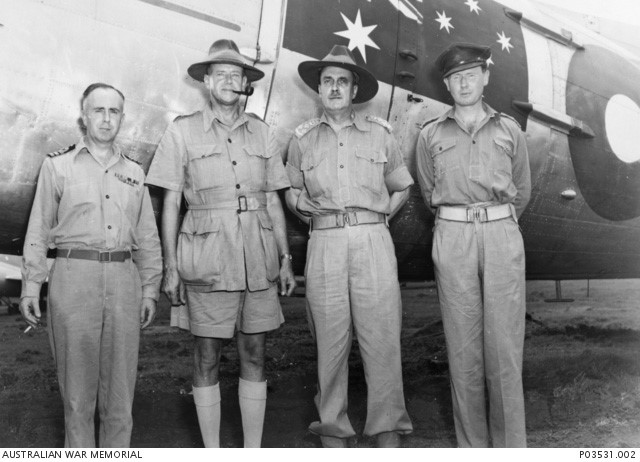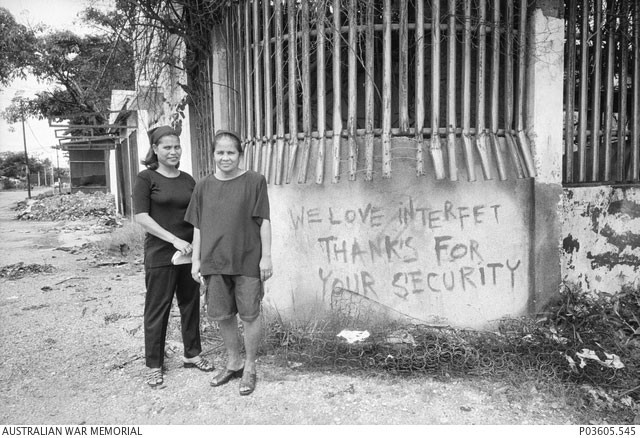Summaries of Australia's peace operations on the Anzac Portal
Every year since 1947, Australia has been involved in peacekeeping operations somewhere in the world. We've deployed defence personnel, police and civilians to act as peacekeepers, peacemakers and peacebuilders.
To coincide with the 75th anniversary of Australian peacekeeping, DVA published summaries of those significant peace operations Australia has participated in. They explain the context of our involvement and share personal accounts from those who served.
Read our new peace operation summaries on the Anzac Portal.
To date, Australians have contributed to more than 70 international peacekeeping operations in more than 60 countries. Operations vary enormously, taking Australians to places as remote as Western Sahara and the Pacific islands. Some missions, such as that to the Congo in 1960, have involved a handful of personnel. Others have been large undertakings involving all three branches of the armed forces, civilians, and federal and state police officers.
The first Australian peacekeepers were deployed to the Netherlands East Indies (now Indonesia) in 1947. Their experience of observing the front between Dutch troops and Indonesian republicans foreshadowed the experiences of generations of Australians to come.
From 1964 to 2021, Australian peacekeepers served in military, civilian and policing roles in Cyprus. The United Nations Peacekeeping Force in Cyprus (UNFICYP) was established to prevent further fighting between the country's Greek and Turkish Cypriot communities.
Australian peacekeepers with the Peace Monitoring Group (PMG) were in Bougainville from 1998 to 2003 to monitor a permanent ceasefire ending a long conflict. Sergeant Penelope (Wenham) Searle was deployed as a signaller with the PMG in 2000:
When we went to Bougainville to keep the peace there had been 15 years of fighting on the island. During that time the schools were closed and lots of things like hospitals were destroyed. One of the first things that happened when the peace was made was that schools reopened. I was amazed to see young adults of 16 or 17 sitting in primary school classes with 5 and 6 year olds because they had missed out on all their schooling but they knew it was important to learn to read and write.
When East Timor experienced a humanitarian and security crisis, Australia led a multinational peacekeeping force in response. Australia's deployment of troops to East Timor in 1999 was the largest since the Vietnam War.
War artist Wendy Sharpe recalled the East Timorese response to Australian troops:
In September when the INTERFET troops came in… the local people got bits of… charcoal from their burnt out houses and wrote messages all over this wall to say thank you to INTERFET. And it's really one of the most moving things you ever saw… On this wall it says, ‘Thank you very much INTERFET my darling, thank you military Australia, I love you military Australia'… It's just this outpouring of thank you… One of the things that struck me when I first arrived in Dili was the way all the people were smiling and waving… They were just so glad… it just made them feel so good that our people had come in to help them.
Veterans, police and civilians are proud to have served on peacekeeping deployments. Some have regrettably witnessed suffering and violence, which can exact a personal toll and leave a lasting impact on them and their families. On 14 September each year, we observe National Peacekeepers’ Day to remember and recognise the service of tens of thousands of Australians who have served as members of a peacekeeping force.
If you want to hear when we publish more summaries, subscribe to the monthly Anzac Portal newsletter.

Left: Australian peacekeepers deployed to the Dutch East Indies in 1947.

Below: Hand-painted sign in Dili, January 2000. INTERFET provided much needed security in East Timor for 5 months after the Independence referendum.
